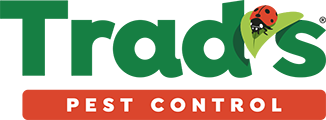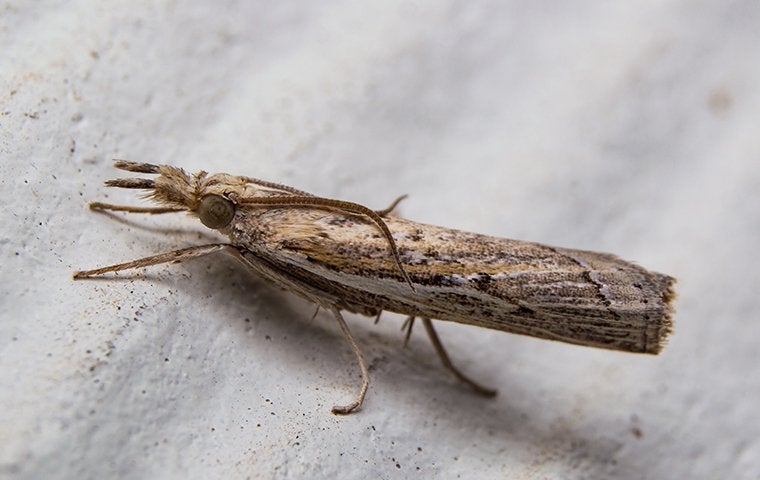Sod webworms are small insects often referred to as grass moths. They can quickly take over your entire yard and cause a surprising amount of damage. If your lawn’s health has taken a turn for the worse, and you’re not sure why it could be a pesky population of sod webworm larvae feeding on your grass.
These pests are difficult to deal with on your own, but our experts at Trad’s Pest Control are here to help with this handy guide to lawn care. Here, we’ll outline everything you need to know about these elusive lawn-destroying insects, including how to identify them and what to do if you see them in your yard. Read on to discover the key to successful pest control in Jacksonville.
What Do Sod Webworms Look Like?
Proper lawn maintenance is a year-round endeavor, and these pests are one of the many challenges you’ll face, but what do they even look like? Sod webworms are rare enough that most people don’t encounter them, but with this guide, you can learn how to identify them before they become a big problem.
Sod webworms get their name from the silken web-like tunnels they construct throughout your grass. In the larval stage, they look like white grubs about half an inch long, and this is the stage in which they do most of the damage to your lawn as they eat the grass. In less than a month, they reach their adult stage and become small moths that can lay clutches of thirty eggs at a time. You can imagine how quickly their populations spiral out of control.
Why Do Sod Webworms Destroy Turfgrass
You’re more likely to spot these pests in their adult stage, but it’s their larval stage that causes most of the damage. When sod webworms emerge from their eggs, they immediately begin to feed on any foliage they can find, and this usually ends up with them wreaking havoc on your yard, leaving a lot of ugly dead patches of dirt.
To treat a sod webworm infestation, you’ll have to prioritize removing any of their larva and eggs before the adult moths. A professional lawn maintenance service can go a long way towards protecting your turfgrass, but there are a few things you can do on your own as well.
Tips To Deter Sod Webworms In Jacksonville
Although these pests can be a challenge to deal with on your own, there are some easy and effective prevention measures you take. Protect your yard with these quick tips on sod webworm control:
- Ensure your grass is in peak condition with regular watering and fertilization.
- Look for pesticide products that specifically mention sod webworms, and spray in the evening when the larvae are most active.
- Introduce natural predators such as nematodes into your lawn’s ecosystem.
- Partner with a professional for ongoing guidance.
There are many types of lawn care services at your disposal, but it’s advisable to partner with a professional for the best protection.
The Best Way To Get Rid Of Sod Webworms Is With Professional Help
Sod webworm pest control in Jacksonville doesn’t have to be an irritating chore. With a bit of help from our experts at Trad’s Pest Control, you can guarantee a healthy, pest-free lawn today. Whether you’re currently fighting a sod webworm infestation that’s ruining your grass or want to protect yourself from the possibility, we’ve got your back.
Call now to schedule your inspection and discover what our team of certified technicians can do for you.

